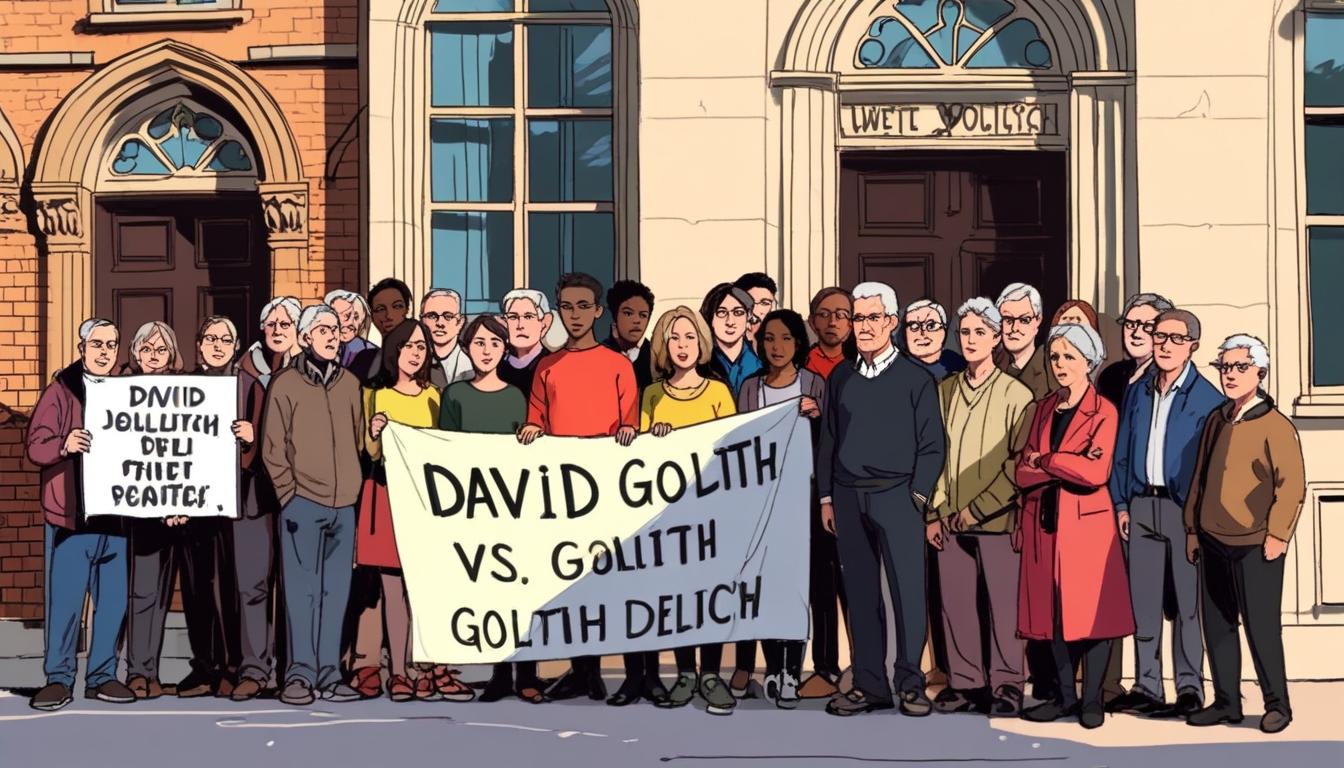A significant legal ruling has emerged from West Dulwich, London, where residents have successfully overturned the introduction of a Low Traffic Neighbourhood (LTN) imposed by Lambeth Council. High Court judge Tim Smith condemned the local authority’s consultation process as “unfair,” ordering the removal of the scheme. This decision underlines a growing resistance against bureaucratic overreach that prioritises misguided initiatives over community needs.
The West Dulwich Action Group (WDAG), representing around 1,000 residents and bolstered by nearly £50,000 raised through crowdfunding, argued that the council’s lack of meaningful consultation before implementing the LTN illustrates a distressing trend in local governance. The scheme was part of a larger initiative launched across various boroughs, fueled by £250 million in government funds aimed at addressing traffic issues in a post-COVID-19 environment. Yet, while proponents tout the potential for reduced traffic and pollution, the reality on the ground reveals a far graver consequence.
Critics have raised valid concerns, with the WDAG highlighting that the LTN merely shifts congestion and pollution to boundary roads, intensifying the burdens on already stressed communities. The judge's acknowledgement of a critical 53-page report prepared by the WDAG—detailing the significant negative impacts of the LTN neglected by the council—further exemplifies the failure to listen to local voices.
While some local authorities insist that LTNs are essential experiments for safer streets, the chaos unleashed in West Dulwich reveals a disconcerting reality: these measures often stem from a detachment from the very communities they aim to serve. A public meeting in April 2023 saw residents voicing their discontent, leaving council members visibly shaken—a stark reminder of how top-down policies can erode trust and result in public outrage.
The overwhelming dissatisfaction with the LTN is evident, with 67.5% of respondents expressing their unhappiness regarding the changes in a recent consultation. Accusations of dismissing public sentiment abound, as campaigners demand a renewed commitment to genuine engagement and transparency in future planning processes.
A WDAG spokesperson characterized the ruling as a “David v Goliath” triumph, underscoring a crucial point: communities are increasingly unwilling to accept top-down impositions that disregard their unique needs. This case not only represents a critical victory for West Dulwich but also signals a turning point for local authorities across the UK.
The outcome in West Dulwich could serve as a precedent for how consultation processes are designed moving forward. As cities wrestle with the dual issues of enhancing mobility and addressing climate concerns, the balance of power must shift towards community engagement, not bureaucratic convenience.
Despite the setback, Lambeth Council had previously touted the LTN programme as a necessary step toward improving public health by providing safer routes for pedestrians and cyclists. However, this ruling sends a clear message to councils nationwide: initiatives that lack comprehensive community involvement and fail to recognize local impacts are bound to encounter significant opposition.
As Lambeth Council weighs its next moves, the implications of this ruling extend far beyond West Dulwich. It could reshape the dialogue between councils and residents and signal the need for urban planning that genuinely prioritizes and reflects community needs—demanding a level of accountability that has been sorely lacking in recent years.
Source: Noah Wire Services
